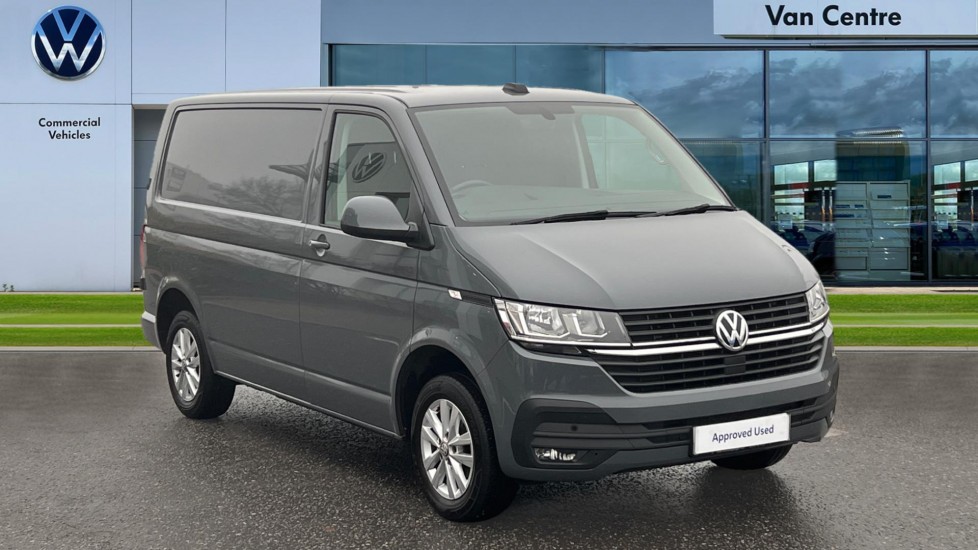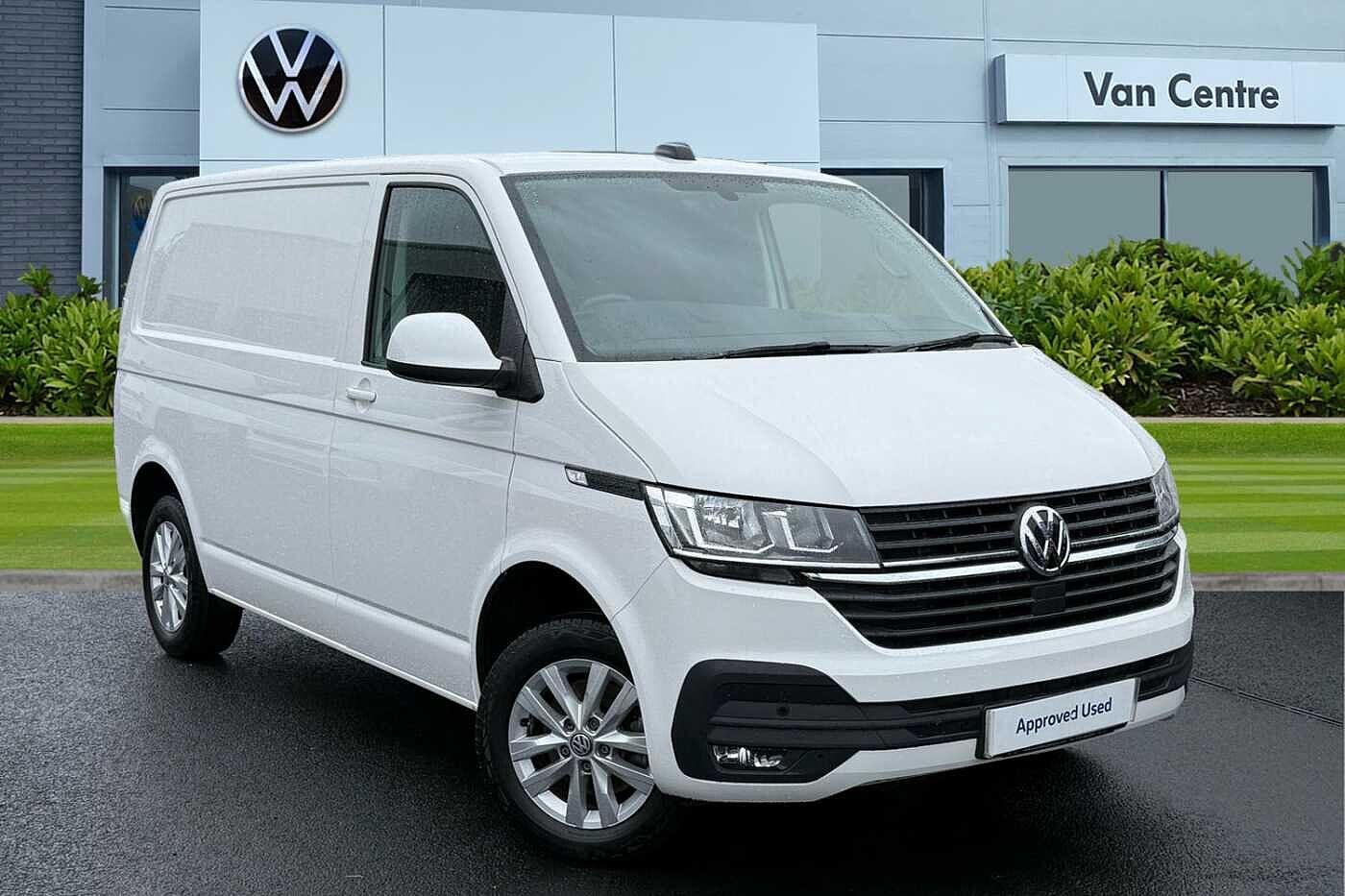Inflating the tires
Copyright 2026 heycar - All rights reserved
It’s fair to say the Volkswagen Transporter is one of the most desirable vans on the road. Perhaps you can thank the model’s enviably long heritage for that, which started with the Type 2 ‘Microbus’ launched not long after the original Beetle, but consistent quality and a fine drive also help modern Transporters along.
As a result its image is stronger even than the likes of the ubiquitous Ford Transit, and while the VW’s breadth of body styles and features is more limited than many of its rivals, it still gets the basics right, with a range of economical engines, useful load space and payload ratings, and plenty of sensible features.
Buyers are spoiled for choice in the van market though so if the Transporter doesn’t quite fit your needs, then the Transit, Renault Trafic, Vauxhall Vivaro, Mercedes Vito, Citroen Dispatch, Peugeot Expert, Toyota Proace, and Fiat Scudo are all potential alternatives.
Image isn’t everything, but it certainly gives the Volkswagen Transporter a helping hand. Whether it’s trading off the strength of the VW badge in general, the long heritage of the Volkswagen Transporter range (that stretches all the way back to the split-screen vans of the 1950s), or the fact that for decades now its vans have been just a little more sophisticated than most, the Transporter is almost as desirable as it is useful.
Among the modern ‘T6.1’ Transporter’s strengths are clean-cut exterior styling, and a cabin design that shares more with Volkswagen’s cars than it does other vans in terms of fit and finish. Volkswagen doesn’t offer quite as many variants as some rival van ranges do, but the ones it does offer are practical and should more than meet the needs of buyers.
The Transporter also drives well. It’s offered with a range of 2-litre diesel engines, with power ranging from 90PS all the way to a twin-turbocharged 204PS. All pull well and all are refined, though their different outputs do endow the Transporter with different payload and towing abilities, so ensure you choose the engine that’s right for your needs. Manual and DSG automatic gearboxes and 4Motion all-wheel drive have all been offered too.
Even a VW badge doesn’t mean the Transporter is packed with car-like creature comforts, so basic Startline models lack niceties such as air conditioning, but the Highline model is better equipped and new buyers could tick a few option boxes too, so not all Transporters will have the same equipment. You might find more kit in some rivals such as the Ford Transit or Renault Trafic, while some of those rivals offer electric power as an option too, which the Transporter doesn’t yet have - but there’s always the VW ID.Buzz Cargo for that.
The best Transporter is a matter of your own needs as an individual or business user, and will hinge mainly on how much utility you need from the van, particularly with regards to load space. The Transporter range is relatively simple in that the regular panel vans come in short and long wheelbase forms, the former swallowing a pair of Euro pallets and the latter taking three. Equivalent crew van variants drop to one pallet for the SWB and two for the LWB, while the larger dropside chassis cab takes up to four Euro pallets. Vans with more power can generally accept higher payloads and have higher tow ratings, so bear that in mind too when you’re shopping.
The Transporter comes in only two trim levels in the ‘T6.1’ models sold since 2019 (at the time of writing, an all-new T7 model is beginning to filter onto the market). Those trims are Startline and Highline, with the latter offering the relatively low specification you’d expect from a more basic van, such as an absence of air conditioning. You’ll find much more variety in the number of body styles: the Transporter is offered in short and long wheelbase panel vans, crew vans, and chassis cab models.
The Volkswagen Transporter’s dimensions are:
The Volkswagen Transporter’s load capacity is:
There’s a flat rate of VED for vans like the Volkswagen Transporter, which for the 2024/2025 tax year is £335 per year for any van with a gross vehicle weight of under 3500kg, or £175.88 for a six-monthly payment by Direct Debit.
The large range of models available means we’ll avoid breaking down the entire range of insurance groups here, but you’ll find the most basic models begin in the high group 20 range, while more expensive models get close to the maximum group 50. Actual insurance costs will depend on how you plan to use the van, so we’d recommend speaking to a broker for an accurate quote.

£25,585
inc. VAT
£27,589
inc. VAT£26,389
inc. VAT£50,148
inc. VAT£41,700
inc. VAT£35,988
inc. VAT£33,589
inc. VAT£38,389
inc. VAT£41,638
inc. VAT£29,154
inc. VAT£38,820
inc. VAT£33,300
inc. VAT£26,700
inc. VAT£30,540
inc. VAT£32,029
inc. VAT£34,669
inc. VAT£28,789
inc. VAT£30,706
inc. VAT37-54 of 637 vehicles
What is the most popular colour for Volkswagen Transporter ?
What is the most popular gearbox for Volkswagen Transporter ?
What is the most popular fuel type for Volkswagen Transporter ?
What is the most popular engine for Volkswagen Transporter ?
What is the average mileage for Volkswagen Transporter ?
13203
How many Volkswagen Transporter cars are available for sale?
651